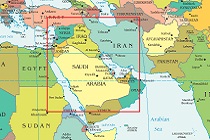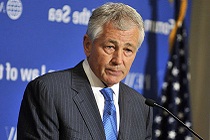Tracing the course of India-Israel ties
There has been strong criticism of the Modi government’s tepid response towards Israel’s offensive in Gaza, with many insinuating religious reasons. However the reality is that India’s engagement with Israel has grown substantially since the two countries established full diplomatic relations in 1992.








